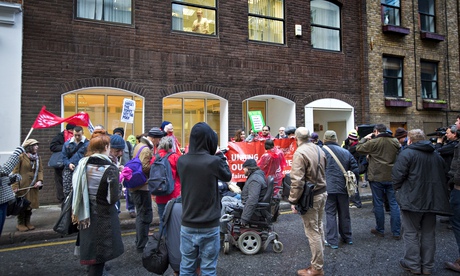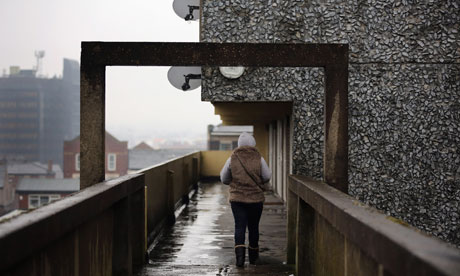Jawed Naqvi in The Dawn
YOU would have thought that water alone has the anomalous property of expanding when frozen. Delhi Chief Minister Arvind Kejriwal displays a very nearly similar propensity. He ‘expands’ where others would retreat. The more the media mocks and berates him on behalf of its paymasters, and tries to put Kejriwal in the deep freeze, the fierier he comes out. In this regard he is somewhat like Donald Trump, but the similarity ends here.
Unlike the flashy billionaire who loves the good things of life, Kejriwal is a middle-class family man, happy with his vegetarian meal and cough syrup. As the US preside15 degreent seeks to discard the pro-poor healthcare and moves to auction away public spaces of learning and education, Kejriwal veers closer to the old-fashioned economics that harks back to India’s early quest to become a welfare state. Unlike most of his competitors Kejriwal revels in his hostility to crony capitalism, which he believes has stunted India’s growth.
YOU would have thought that water alone has the anomalous property of expanding when frozen. Delhi Chief Minister Arvind Kejriwal displays a very nearly similar propensity. He ‘expands’ where others would retreat. The more the media mocks and berates him on behalf of its paymasters, and tries to put Kejriwal in the deep freeze, the fierier he comes out. In this regard he is somewhat like Donald Trump, but the similarity ends here.
Unlike the flashy billionaire who loves the good things of life, Kejriwal is a middle-class family man, happy with his vegetarian meal and cough syrup. As the US preside15 degreent seeks to discard the pro-poor healthcare and moves to auction away public spaces of learning and education, Kejriwal veers closer to the old-fashioned economics that harks back to India’s early quest to become a welfare state. Unlike most of his competitors Kejriwal revels in his hostility to crony capitalism, which he believes has stunted India’s growth.
He was likened to Pakistan’s Imran Khan initially. That was unintelligent. If anything, Imran veers closer to the BJP’s politics of riding religious identity. Would he be able to say, for example, “I will never use religion to win an election even if I have to lose a 100 times”? That’s what Kejriwal said publicly when the BJP won Uttar Pradesh in a polarised election.
Some events more readily set him apart from his rivals. When mobs attacked Muslims in BJP-ruled Haryana, Kejriwal dispatched a fact-finding team to the neighbouring state. In 2015, Haryana Chief Minister M.L. Khattar reportedly asked Muslims to leave the country unless they gave up eating beef, a claim he later denied. “Khattar sahib should resign … His statement is not only unfortunate, but shameful,” Kejriwal’s Aam Aadmi Party said. He set up a special investigation team to revisit the Sikh massacre of 1984, which has not attained a satisfactory closure. When Hindutva mobs vandalised churches in Delhi, it was the AAP that led the face-off with the communalists. I’m not sure if any of these events could be associated with the studiously pro-clergy Imran Khan. Recently, Kejriwal was associated with a Jain monk who walks naked, and it’s his business to do that. But the AAP leader has not used religion to canvass support or to attack his opponents. The imam of Jama Masjid, known for meddling in Muslim communalism, offered support to Kejriwal, which he tersely refused.
Some events more readily set him apart from his rivals. When mobs attacked Muslims in BJP-ruled Haryana, Kejriwal dispatched a fact-finding team to the neighbouring state. In 2015, Haryana Chief Minister M.L. Khattar reportedly asked Muslims to leave the country unless they gave up eating beef, a claim he later denied. “Khattar sahib should resign … His statement is not only unfortunate, but shameful,” Kejriwal’s Aam Aadmi Party said. He set up a special investigation team to revisit the Sikh massacre of 1984, which has not attained a satisfactory closure. When Hindutva mobs vandalised churches in Delhi, it was the AAP that led the face-off with the communalists. I’m not sure if any of these events could be associated with the studiously pro-clergy Imran Khan. Recently, Kejriwal was associated with a Jain monk who walks naked, and it’s his business to do that. But the AAP leader has not used religion to canvass support or to attack his opponents. The imam of Jama Masjid, known for meddling in Muslim communalism, offered support to Kejriwal, which he tersely refused.
The more Kejriwal’s rivals throw muck at him, the cleaner he looks. How many times has the Delhi Police picked up his MLAs for this or that alleged crime only to be rapped on the knuckles by the courts? By a quirk of logic, the Delhi government has no control on the city’s police who fall under federal supervision. Even the chief minister’s offices were not spared from being raided by the agencies. They only got frustration to show for their heavily publicised efforts.
Sample a report in The Hindustan Times last month: “The Delhi Police arrested 13 MLAs of the ruling Aam Aadmi Party in the last two years on charges ranging from rape, extortion, cheating, forgery to rioting. For most of these offences bail is hard to come by, but all the 13 lawmakers are out on bail. In fact, two have been cleared of all charges.”
The anomalous rise of Kejriwal persists with its perverse logic. In 2013, according to The Hindu, the Congress government moved to probe alleged foreign funding to Kejriwal’s party. The following day, the daily donation to the AAP increased six-fold. Kejriwal thanked the BJP and the Congress for the windfall. Like Jerry Mouse thumbing his nose at his quarry, he said: “We are grateful to the BJP and the Congress for raising questions on our funds.”
I have met Kejriwal once for five seconds at a public event where I thought of giving him a book on corporate corruption. He may never have needed it actually, because it turned out that he knew more than the book could reveal. I am told he is allergic to leftists, which is not strange since the left has vainly put up candidates against him. But then, what is a former Maoist doing in his cabinet? There must be some meeting of the minds. It could be much more than that.
Initially, I tended to agree with those who were unsparing in their criticism of Arvind Kejriwal. They were supporters of Congress or the left and believed that he was some kind of an agent for the BJP, if not the Rashtriya Swayamsevak Sangh. He very nearly was. His early mascot was dubious — a former army truck driver who was projected as a Gandhian activist against corruption, a strange Gandhian though who prescribed public flogging for tipplers.
Easily the single-most important factor shoring up Kejriwal’s pronounced secularism is Ashish Khetan. This journalist-turned-politician carried out the most damaging exposés on Hindutva fanaticism in Gujarat during Prime Minister Modi’s tenure as the state’s chief minister. Khetan’s eerie video interview — a sting operation — with a self-confessed hater of Muslims could only be subverted as evidence of crime and complicity if the state’s key pillars looked the other way.
Last week, the Modi government through the lieutenant governor shut down the AAP party office in Delhi claiming it did not have official clearances. The timing was notable. Elections are scheduled next week to the Municipal Corporation of Delhi, currently ruled by the BJP. “A victory in the municipality will fulfil Mr Modi’s dreams for India”, says the radio jingle. Kejriwal was the first to stall the Modi juggernaut in Delhi. In response, the prime minister, that for the first time in Delhi municipality’s history, has staked his reputation to defeat Kejriwal. But in Kejriwal’s case when he loses, he wins.
Sample a report in The Hindustan Times last month: “The Delhi Police arrested 13 MLAs of the ruling Aam Aadmi Party in the last two years on charges ranging from rape, extortion, cheating, forgery to rioting. For most of these offences bail is hard to come by, but all the 13 lawmakers are out on bail. In fact, two have been cleared of all charges.”
The anomalous rise of Kejriwal persists with its perverse logic. In 2013, according to The Hindu, the Congress government moved to probe alleged foreign funding to Kejriwal’s party. The following day, the daily donation to the AAP increased six-fold. Kejriwal thanked the BJP and the Congress for the windfall. Like Jerry Mouse thumbing his nose at his quarry, he said: “We are grateful to the BJP and the Congress for raising questions on our funds.”
I have met Kejriwal once for five seconds at a public event where I thought of giving him a book on corporate corruption. He may never have needed it actually, because it turned out that he knew more than the book could reveal. I am told he is allergic to leftists, which is not strange since the left has vainly put up candidates against him. But then, what is a former Maoist doing in his cabinet? There must be some meeting of the minds. It could be much more than that.
Initially, I tended to agree with those who were unsparing in their criticism of Arvind Kejriwal. They were supporters of Congress or the left and believed that he was some kind of an agent for the BJP, if not the Rashtriya Swayamsevak Sangh. He very nearly was. His early mascot was dubious — a former army truck driver who was projected as a Gandhian activist against corruption, a strange Gandhian though who prescribed public flogging for tipplers.
Easily the single-most important factor shoring up Kejriwal’s pronounced secularism is Ashish Khetan. This journalist-turned-politician carried out the most damaging exposés on Hindutva fanaticism in Gujarat during Prime Minister Modi’s tenure as the state’s chief minister. Khetan’s eerie video interview — a sting operation — with a self-confessed hater of Muslims could only be subverted as evidence of crime and complicity if the state’s key pillars looked the other way.
Last week, the Modi government through the lieutenant governor shut down the AAP party office in Delhi claiming it did not have official clearances. The timing was notable. Elections are scheduled next week to the Municipal Corporation of Delhi, currently ruled by the BJP. “A victory in the municipality will fulfil Mr Modi’s dreams for India”, says the radio jingle. Kejriwal was the first to stall the Modi juggernaut in Delhi. In response, the prime minister, that for the first time in Delhi municipality’s history, has staked his reputation to defeat Kejriwal. But in Kejriwal’s case when he loses, he wins.






